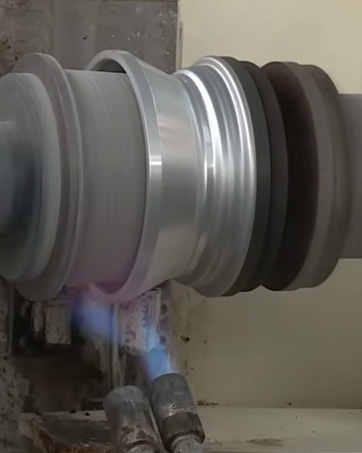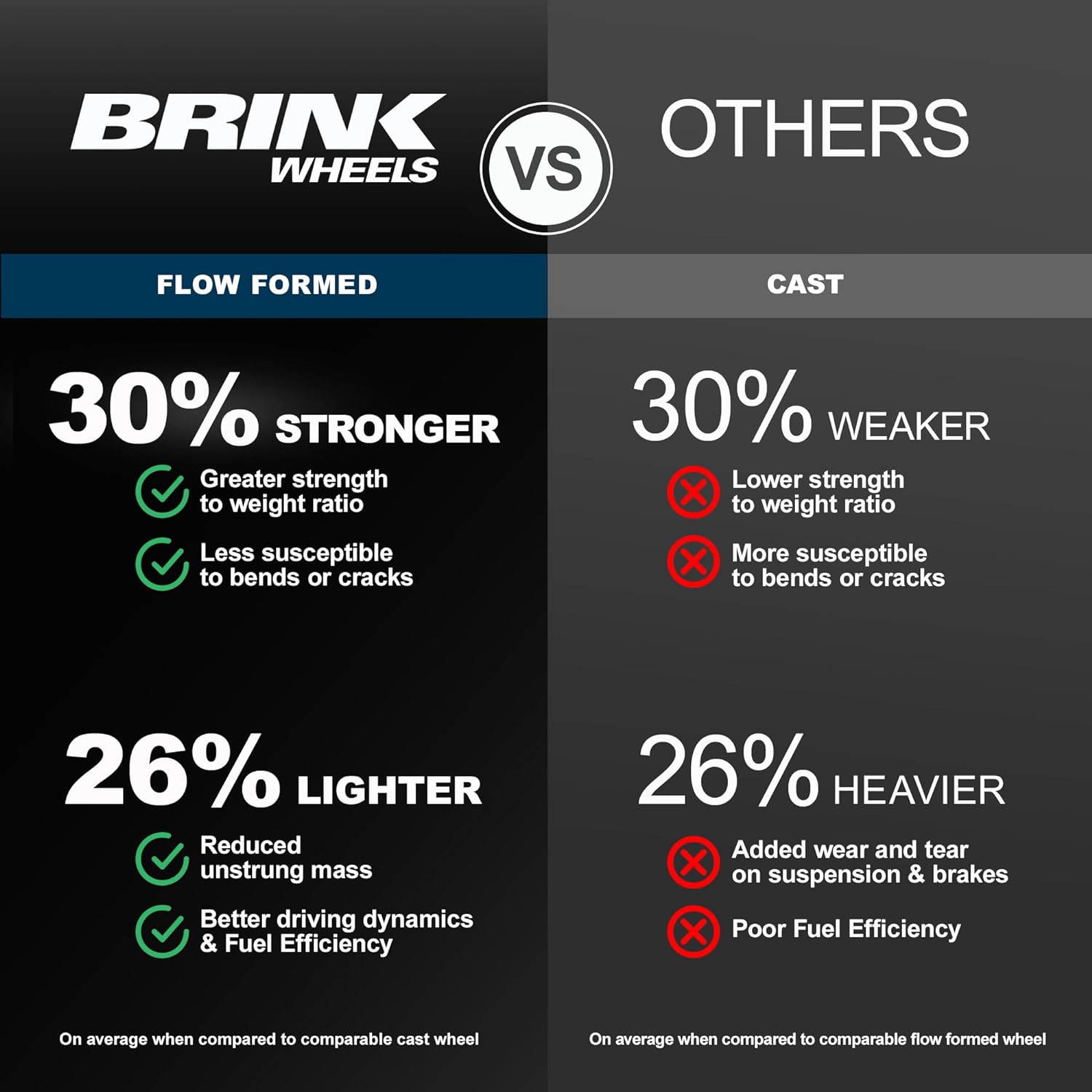Flow Formed: A Revolution in Wheel Manufacturing
Traditionally you had two options Cast or Forged. In short cast is a wheel manufactured from raw aluminum poured into a mold while forged is derived from an aluminum forging that’s later process through a cnc machine to give it it’s final design. The issue was that these two options varied drastically in price with a 20×9 average cast wheel retailing for $249.00 while a forged wheel in the same size retails for $850.00.
Then came Flow Formed…
Flow forming is a specialized manufacturing technique that enhances the structural integrity and performance of cast wheels. This process involves the application of high pressure and heat to a wheel’s barrel section, causing the aluminum to flow and stretch into its final shape. The result is a wheel that boasts remarkable strength, reduced weight, and improved structural integrity.
Benefits of Flow Formed Wheels
Enhanced Strength: On Average Flow Formed wheels are 30% Stronger than comparable cast wheels. The flow forming process compresses and fortifies the alloy material, making the wheels resistant to bending, cracking, and impact damage. This increased strength translates to improved safety on the road.
Reduced Weight: On Average Flow Formed wheels are 26% Lighter than comparable cast wheels. Flow Formed Wheels are designed to be lighter than traditional cast wheels, reducing unsprung weight and enhancing handling, acceleration, and braking response. This not only enhances driving dynamics but also contributes to improved fuel efficiency.
In short, Reducing unsprung mass helps your trucks suspension work more effectively. While reducing rotating mass makes the truck accelerate and stop faster.
At BRINK we understood the benefits of going Flow Formed. For us making the additional investment in going Flow Formed was a no brainer and we’re proud to be one of the first within the truck and suv segment to do so.


